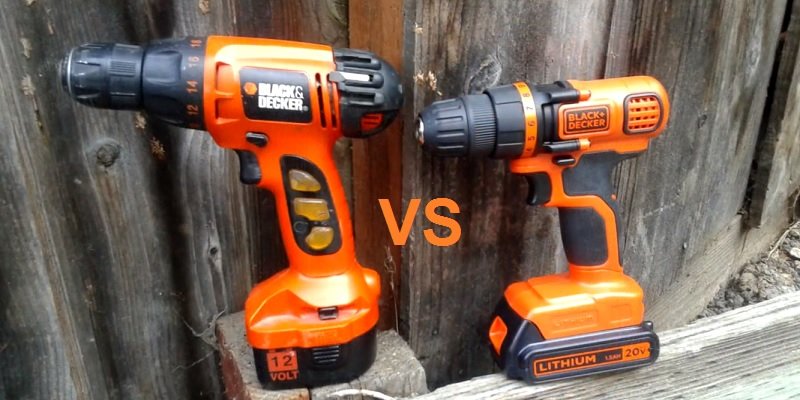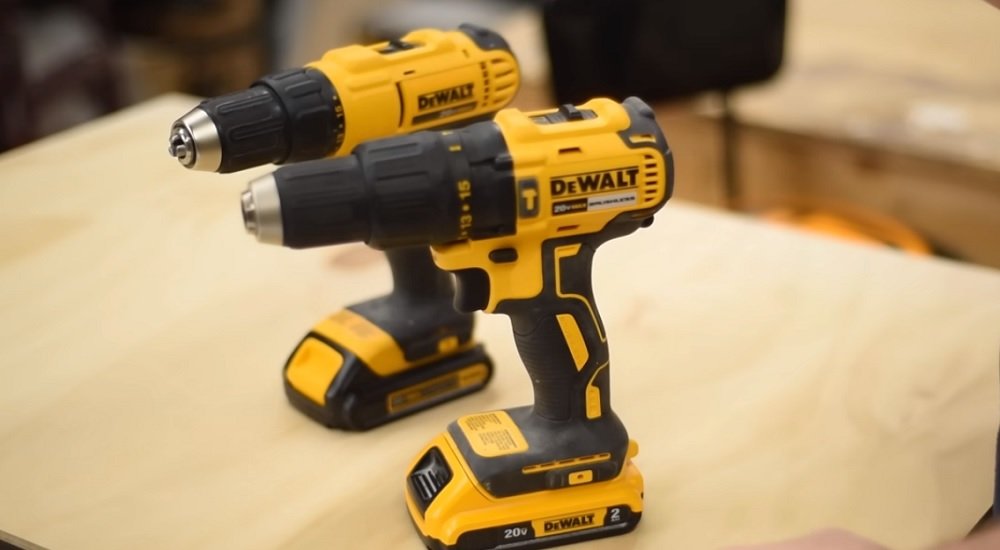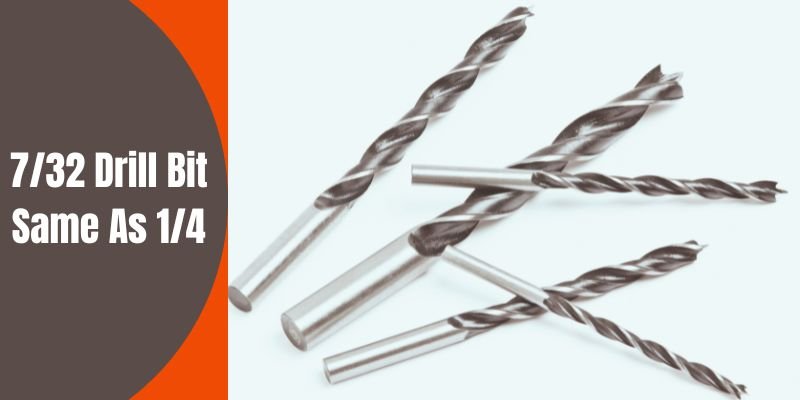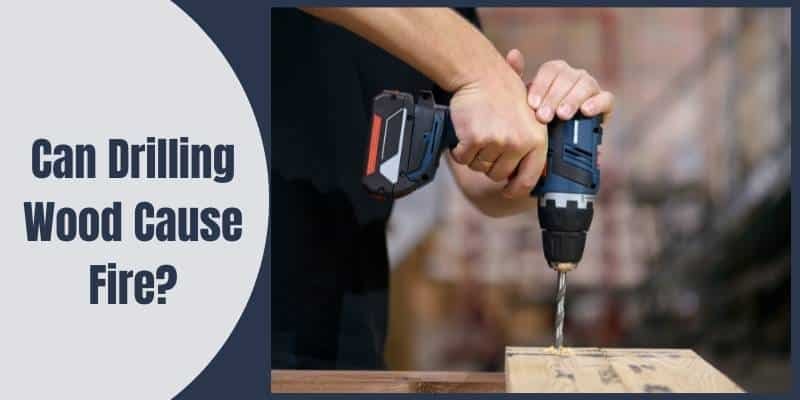Disclosure: This post contains affiliate links and I will be compensated if you make a purchase after clicking through my links. Learn More
Choosing between a 12v or 20v drill used to be simple. Now, not so much.
The dizzying choices between compact 12v models and powerhouse 20v tools can make your head spin.
Do lightweight 12v drills really have enough juice for serious jobs? And are bulky 20v beasts necessary for hanging pictures?
The truth lies somewhere in between. Picking the right drill for you is all about understanding power, portability and features.
This quick guide cuts through the numbers and myths. We’ll highlight where each drill type excels so you can find the ideal match for your needs. Let’s dispel the confusion and zero in on the perfect drill!

How to Choose Between 12V vs 20V Drill
When it comes to drills, one of the most common questions that comes up is whether you should choose a 12v or 20v model. On the surface, the voltage seems to be the key difference between these two drill types, but there are other important factors to consider as well. We’ll break down the key similarities and differences between 12v vs 20v drills to help you decide which is better suited for your needs.
Understanding Voltage and Power Output
The voltage rating on a drill refers to the amount of power it can output. Higher voltage drills can deliver more torque, enabling them to handle tougher jobs involving thicker or denser materials.
12v drills operate off lower voltage batteries and deliver sufficient power for lighter duty tasks like installing screws in wood or drilling small holes.
20v models utilize higher voltage lithium ion battery packs and can generate considerably more turning force for boring large holes or driving screws into tough materials like concrete or steel.
While the voltage plays a big role, it’s not the only factor determining the power and capabilities of these tools. You also have to look at the amp hour (Ah) rating on the batteries, which indicates how long they can run before needing a recharge.
Additionally, advanced motors, gearing and torque settings can vastly expand the functionality of 12v and 20v drills. Many 12v drills now use efficient brushless motors and optimized gearing to produce power approaching that of early 20v models.
So while 20v drills have the edge in power output, there is considerable overlap in capabilities between advanced 12v and basic 20v products. You have to look beyond just the voltage to assess factors like battery life, motor performance and chuck size to determine how well a drill will perform for a given task.
Key Differences Between 12v vs 20v Drills
Now that we’ve covered the basic voltage and power distinctions, let’s take a more detailed look at how these two drill types compare:
Torque Output
The higher voltage of 20v drills translates into considerably more turning force and torque. A typical 12v drill produces around 300 in-lbs of torque, while 20v models generate 400-600 in-lbs. This allows 20v drills to power through denser materials using larger bits.
Drilling Capabilities
Higher torque enables 20v drills to drill bigger holes, especially in metal and masonry. Most 12v max out at 3/8” to 1/2″ in steel, while 20v drills can bore holes up to 3/4” or larger. 12v models are suitable for drilling curtain rod holes or driving screws, while 20v drills are better for heavy duty tasks like installing lag bolts.
Run Time
The lower voltage requirements of 12v drills mean their batteries tend to last significantly longer per charge. A 12v 2Ah battery may operate a drill for up to 8 hours, while a 20v 2Ah battery powered drill will only run for around 2 hours. However, 20v batteries charge faster.
Weight and Size
12v drills weigh 25-30% less than comparable 20v models. Their smaller batteries and motors make them more compact and easier to handle in tight spaces. 20v drills weigh up to 4-5 lbs and can feel bulky during overhead use.
Features
Higher end 20v drills generally offer more power settings, sturdier construction and brighter work lights. However, advanced brushless 12v models now match 20v drills in precision and features. Basic 12v and 20v drills tend to lack power settings, metal gearing and clutch control.
Cost
The smaller 12v batteries cost substantially less than 20v lithium ion packs. However, the drill itself may cost more for advanced 12v brushless models. Basic brushed 12v drills are the cheapest options.
As you can see, the voltage rating doesn’t tell the whole performance story. While 20v models have a power advantage, especially for heavy duty tasks, 12v drills are quite capable for common DIY applications and feature impressive battery runtime.
Similarities Between 12V and 20V Drill
Here are 3 key similarities between 12v and 20v drills:
- Both 12v and 20v drills use lithium-ion batteries for long lasting power and rapid recharging.
- Variable speed triggers give users precise control over RPMs for different materials and applications.
- Keyless chucks allow for quick and easy bit changes by hand without needing tools.
In summary, the core technologies of lithium-ion batteries, variable speed triggers, and keyless chucks are common to both 12v and 20v drills. This allows them to provide convenient cordless use, speed control, and versatility regardless of voltage power level.
When to Choose A 12v Drill

Now that we’ve compared the key pros and cons, here are the best uses for a 12-volt drill:
Light Duty DIY Tasks
12v drills work extremely well for common jobs like hanging pictures and curtains, assembling furniture, installing cabinet hardware or screwing plywood subflooring. They have plenty of power for drilling and driving into softwoods and sheet goods.
Precision Drilling and Driving
The smaller size, lower torque and increased run time of 12v drills makes them ideal for detail work. Jobs like drilling small pilot holes or sinking delicate screws benefit from the enhanced control and accuracy of 12v drivers.
Overhead Use
Working overhead on a ladder trying to support a 4 lb 20v drill can quickly become fatiguing and unsafe. The lighter 2-3 lb weight of 12v models reduces arm strain for extended overhead installation or construction tasks.
Tight Space Access
The smaller grip and battery pack of 12v drills allows for handier use in confined areas where maneuvering a full size drill is difficult. Jobs like installing shelving in closets and cabinetry are easier with compact 12v drivers.
Portable and Multi-Tool Use
Contractors, electricians and maintenance workers who need to carry tools from place to place prefer the lighter 12v drills for daylong portable use. The variety of 12v powered rotary and oscillating tools also enables efficient one-battery multi-tool use.
Budget Conscious Buyers
While prices vary widely, 12v brushed drill and battery kits can often be purchased for under $50. This makes them appealing for cost conscious DIYers who only tackle light duty drilling/driving tasks from time to time.
For most homeowners, 12v drill/drivers offer the ideal balance of power, portability and value for general around-the-house use.
Best Uses for A 20v Drill

20v cordless drills really shine in these applications:
Heavy Duty Drilling
Lag bolts, spade bits and hole saws require tremendous torque, especially in dense materials. 20v power easily bores 3/4” plus holes through solid wood, steel and masonry. 12v models bog down and lack the sustained torque for big bits.
Driving Long Screws
Deck construction, framing and other jobs requiring driving long screws benefit from the brute force of a 20v impact driver. Their extra power drives fasteners cleanly without stripping or breaking screw heads.
Extended High Power Use
Big projects like building a deck involve drilling and driving all day long. 20v lithium ion packs sustain high power output for several hours without fading or dying mid-job like lower voltage batteries can.
Frequent Recharge Cycling
Contractors and tradesmen work drill/drivers hard every day. 20v batteries hold up better to the frequent discharge-recharge cycles demanded by heavy professional use. Heat and wear take a greater toll on 12v packs.
Outdoor Job Site Use
The generator-like power of 20v tools makes them favored by builders and contractors for outdoor job site use. Rain, dirt and rough conditions are no match for the sturdy 20v drill design.
Specialty Bits
Hammer drills, right angle drivers, hole saws and other accessories call for maximum drill power. Specialty carpentry, plumbing and electrical bits work best with higher torque 20v models.
Future Expansion
Investing in a 20v drill means you can add higher draw tools like circular saws, grinders and grease guns while using the same battery system. 20v tools prevent unexpected power limitations as your capabilities expand.
While their upfront cost exceeds 12v drills, 20v models offer long term value for professional contractors or avid DIYers needing serious drilling and driving power.
Key Considerations When Buying a Drill
Whichever voltage you choose, keep these factors in mind when selecting a drill:
- Power source – Nicad, NiMH and Li-ion battery types differ in performance, lifespan and cost
- Torque rating – Look for lbs/in torque ratings to gauge drilling and driving power
- Gearing – Metal planetary gears are more durable than plastic gears
- Clutch settings – Multiple clutch stops help prevent screw stripping and damage
- Chuck size – 1/2″ chucks allow larger bit sizes than 3/8” models
- Brushed vs. brushless – Brushless motors run cooler and more efficiently
- Battery Ah rating – Higher amp hour batteries last longer per charge
- Special features – Built-in bubble levels, belt clips, work lights and other features add functionality
- Brand reputation – Stick with proven brands like DeWalt, Makita, Milwaukee for best quality
- Warranty – Longer warranty periods indicate greater expected durability
- Cost – Prices range from under $50 for basic models to over $200 for high performance brushless kits
Taking stock of how you plan to use your new drill and which features are essential will help narrow the selection process and ensure you choose the best drill for your needs.
Top 12v Drill Recommendations
Here are some of the top performing and best value 12v cordless drills suitable for most general DIY use:
DeWalt 12V MAX XTREME Drill
This DeWalt DCD701F2 drill packs a punch in a small package. At just 1.9 pounds and under 6 inches long, it’s easy to handle in tight spots. The brushless motor gives it more power and longer run time than older models. With 1500 RPM top speed and 15 clutch settings, it handles a wide range of jobs. The 3/8-inch chuck holds bits securely, and the LED light helps you see your work.
The kit includes two 2.0 Ah batteries, a charger, and a tool bag, so you’re ready to go. While it’s not the most powerful drill out there, it’s great for most home and light work tasks. The 3-year warranty gives peace of mind. Overall, it’s a solid choice for DIYers and pros who need a compact, reliable drill.
Milwaukee M12 3/8 in Drill
Milwaukee’s 2407-22 M12 drill is a workhorse in a small body. It delivers impressive 275 inch-pounds of torque, making it strong enough for most drilling and driving tasks. The two-speed gearbox (0-400/0-1,500 RPM) lets you match speed to your job. At 2.4 pounds, it’s light enough for all-day use. The on-board fuel gauge is handy, letting you know when it’s time to swap batteries.
The kit comes with two 1.5 Ah batteries, which might run out quickly on big jobs. The 5-year warranty is a standout feature, showing Milwaukee’s faith in their product. The LED light helps in dark corners. For pros and serious DIYers, this drill offers a great mix of power and portability.
BLACK+DECKER 12V MAX 3/8 Drill
Black+Decker’s BDCDD12C 12V drill is a budget-friendly option for light home use. It’s simple to use with its single-speed design (0-550 RPM) and keyless chuck. At 3 pounds, it’s heavier than some competitors but still manageable for most users. The 9.4-inch length might make it tricky in very tight spaces.
The kit includes one 1.5 Ah battery, which may not last long for bigger projects. The LED work light is a nice touch for dimly lit areas. While it lacks the power and features of pricier models, it’s a good starter drill for basic home repairs and small projects. The 2-year warranty provides some protection. If you need a basic drill for occasional use, this could fit the bill.
Milwaukee M12 FUEL 1/2 in Drill
The Milwaukee 3403-22 M12 FUEL 1/2 inch drill is a powerhouse in a compact form. It boasts 400 inch-pounds of torque, tackling tough jobs with ease. The brushless motor provides more power and longer run time. At 2.5 pounds and just under 6 inches long, it’s surprisingly portable for its power. The two-speed gearbox (up to 1550 RPM) offers versatility for different tasks.
The kit includes both a 2.0 Ah compact battery and a 4.0 Ah extended capacity battery, giving you options for power or runtime. The 5-year warranty shows Milwaukee’s confidence in their tool. For pros or serious DIYers who need lots of power in a small package, this drill is hard to beat.
Best 20v Drill Options
Here are some top rated and trusted 20v drill models to consider for heavy duty drilling/driving tasks:
DeWalt 20V Max 1/2 in. Cordless Drill/Driver Kit
DeWalt’s DCD771C2 20V MAX drill delivers solid performance with 300 Unit Watts Out. The two-speed gearbox maxes out at 1500 RPM, suitable for most drilling and driving tasks. The 1/2-inch single sleeve ratcheting chuck holds bits firmly. At 4 pounds, it’s on the heavier side, but the ergonomic handle helps with comfort.
The 6.5-inch length is great for tight spaces. Two 1.3 Ah batteries are included, giving you a backup. The LED light helps in dark areas. With a 3-year warranty, DeWalt stands behind their product. It’s a well-rounded tool that balances power, size, and reliability, making it a good choice for both DIYers and pros who need a dependable drill.
Porter Cable 20V MAX 1/2 in Drill
Porter Cable’s PCC601LB 20V MAX drill offers good performance at a mid-range price. With 283 Unit Watts Out, it can handle most home and light work tasks. The two-speed gearbox (0-350/0-1500 RPM) provides versatility. The 1/2-inch keyless chuck accepts larger bits. At 3.5 pounds, it’s light enough for most users. The 8.25-inch length helps it fit in tighter spaces.
The kit includes two 1.3 Ah batteries, giving you a spare. The LED light is handy in dark spots. With a 3-year warranty, it offers decent protection. While not as powerful as some pro-grade tools, it’s a solid choice for DIYers and occasional professional use.
BLACK+DECKER 20V MAX 3/8 Cordless Drill
This Black+Decker BCD702C1 drill offers more power than its 12V cousin. The 20V battery gives it extra oomph for tougher jobs. With an 11-position clutch, you can fine-tune the torque for different tasks. The 3/8-inch keyless chuck makes bit changes quick and easy. At 600 RPM, it’s not the fastest drill, but it’s good for most home projects.
The LED light helps in dark spots. At 2.5 pounds, it’s light enough for long use. The 10.9-inch length might be tricky in tight spaces. The single 1.5 Ah battery may need frequent charging for big jobs. With a 2-year warranty, it’s a solid choice for homeowners who need more power than a 12V drill but don’t want to break the bank.
Milwaukee M18 Fuel 1/2 Brushless Drill/Driver Kit
Milwaukee’s 2904-22 M18 FUEL drill is a powerhouse. With 1400 inch-pounds of torque, it can handle the toughest jobs. The brushless motor and RedLink Plus intelligence boost performance and battery life. The two-speed gearbox tops out at 2100 RPM, making quick work of drilling tasks. At 4.91 pounds, it’s heavier than some, but the power makes up for it.
The metal ratcheting chuck holds bits securely. Two 5.0 Ah batteries provide long run times. The LED light helps in dark areas. With a 5-year warranty, Milwaukee stands behind their product. For pros or serious DIYers who need maximum power and don’t mind the weight, this drill is top-notch.
Craftsman V20 1/2 in Drill
Craftsman’s CMCD700C1 V20 drill packs a punch with 280 unit watts out. The two-speed gearbox (0-350/0-1,500 RPM) lets you match speed to your task. The 1/2-inch keyless chuck holds larger bits for bigger jobs. At 2.67 pounds, it’s light enough for all-day use. The LED light is great for dark corners. The 8.35-inch length helps it fit in tighter spots.
The kit includes one 1.3 Ah battery, which might run out quickly on big projects. The 3-year warranty gives peace of mind. While it’s not the most powerful drill out there, it’s a good mid-range option for DIY enthusiasts and light professional use. It balances power, weight, and price well.
Here are some additional frequently asked questions about 12v vs 20v drills
What’s the difference between 12v Max and 20v Max branding?
The “Max” labeling refers to the maximum voltage in the tool’s battery system. 12v Max tools use 12v lithium ion battery packs, while 20v Max drills use 20v lithium ion batteries. The max labeling helps differentiate the new lithium ion power from older 12v and 18v battery technologies.
Read Also: Can I Use a 20V Battery On 12V Drill?
How much does a 12v drill weigh compared to a 20v?
On average, a 12v drill weighs about 2-3 pounds, while a comparable 20v drill weighs around 3.5-4.5 lbs. The lighter 12v models are preferred for extended overhead use or all day portable use.
Can a 12v drill drive 3-inch screws?
Most standard 12v drill/drivers can drive screws up to 2 inches without issue. More powerful 12v models with advanced motors can typically drive up to 3-inch length screws, especially into softwoods. Use an appropriate pilot hole for smoothest driving.
Do I need a hammer drill for concrete drilling?
For heavy duty concrete drilling, hammer drills which produce a hammering and rotating action are required. However, regular 12v and 20v drills can drill shallow holes in concrete using special masonry bits. A rotary hammer drill is best for repetitive concrete boring.
How many amp hours do I need in a battery?
Look for 1.5Ah to 2Ah batteries for general DIY use. Batteries with higher amp hour ratings typically deliver longer runtimes, but are more expensive. Contractor grade packs go up to 6Ah and higher for all day power. Buy more cells than you need so you always have a fresh pack charging.
Should I buy brushed or brushless?
Brushless motors are more efficient, run cooler, and last longer. However, brushed motors are cheaper. Brushless tools cost more but deliver performance closer to corded models. Either type works for most homeowners, while pros prefer brushless for daily heavy use.
Is an impact driver better than a drill for driving screws?
Yes, the sharp hammering action of an impact driver allows it to drive screws with considerably more turning force than a standard drill. This prevents screw cam-out, stripping and damage. Use a drill for drilling holes, drivers for heavy duty fastening.
Final Thoughts
When comparing 12v vs 20v drills, it’s all about matching power and capabilities to your drilling and driving needs. As you can see, both 12v and 20v drills can deliver the power, features and performance for tackling a wide range of light and heavy drilling applications.
The key is choosing a drill with proven durability, battery life and clutch/speed control features suited for how you plan to use it. Pay close attention to power output ratings, tool weight, clutch settings and battery performance to select the ideal drill for your home DIY or professional job site needs.


